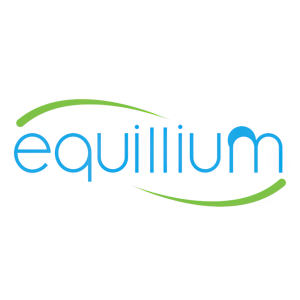Equillium Announces Presentation of Data Demonstrating Biological Importance of Multi-Cytokine Inhibitors EQ101 and EQ102 at the La Jolla Immunology Conference
Results demonstrate the use of selective inhibitors of multiple key cytokines as an effective strategy in treating autoimmune diseases driven by T and NK cells
“The complexity of cytokine signaling to regulate immune homeostasis presents unique drug development challenges when treating disease,” said
Title: EQ101 and EQ102, selective multi-cytokine antagonists, inhibit cytotoxic T cell and NK activity
Poster: I29
Author:
The presentation highlights important roles of cytotoxic T lymphocytes (CTLs) and natural killer (NK) cells in the pathogenesis of various autoimmune and inflammatory diseases, and their activity being driven by multiple cytokines. For this research, human peripheral blood mononuclear cells (PBMCs) were stimulated with anti-CD3 and CD28 antibodies, rested overnight, labeled with a proliferation dye, treated with EQ101 or EQ102, and stimulated with IL-15 for 72 hours, then analyzed for surface activation markers by flow cytometry. Treatment of PBMCs with EQ101 or EQ102 resulted in an approximate
The poster is available under the Multi-Cytokine Inhibition tab of the Presentations page of the Technology section of the company website.
About Multi-Cytokine Platform: EQ101 & EQ102
Our proprietary multi-cytokine platform (MCP) generates rationally designed composite peptides that selectively block key cytokines at the shared receptor level targeting pathogenic cytokine redundancies and synergies while preserving non-pathogenic signaling. This approach provides multi-cytokine inhibition at the receptor level and is expected to avoid the broad immuno-suppression and off-target safety liabilities that may be associated with other therapeutic classes, such as JAK inhibitors. Many immune-mediated diseases are driven by the same combination of dysregulated cytokines, and we believe identifying the key cytokines for these diseases will allow us to target and develop customized treatment strategies for multiple autoimmune and inflammatory diseases.
Current MCP assets include EQ101, a first-in-class, tri-specific inhibitor of IL-2, IL-9 and IL-15, and EQ102, a first-in-class, selective inhibitor of IL-15 and IL-21.
About
For more information, visit www.equilliumbio.com.
Forward Looking Statements
Statements contained in this press release regarding matters that are not historical facts are "forward-looking statements" within the meaning of the Private Securities Litigation Reform Act of 1995. Forward-looking statements may be identified by the use of words such as "anticipate", "believe", “could”, “continue”, "expect", "estimate", “may”, "plan", "outlook", “future” and "project" and other similar expressions that predict or indicate future events or trends or that are not statements of historical matters. Because such statements are subject to risks and uncertainties, many of which are outside of the Company’s control, actual results may differ materially from those expressed or implied by such forward-looking statements. Such statements include, but are not limited to statements regarding the potential benefits of using our multi-cytokine platform to develop treatments for patients with certain autoimmune and inflammatory diseases, Equillium’s plans and expected timing for developing EQ101 and EQ102 including the expected timing of initiating, completing and announcing further results from Phase 2 and Phase 1 studies, respectively, the potential for any of Equillium’s ongoing or planned clinical studies to show safety or efficacy, Equillium’s anticipated timing of regulatory review and feedback, and Equillium’s plans and expected timing for developing its product candidates and potential benefits of its product candidates. Risks that contribute to the uncertain nature of the forward-looking statements include: uncertainties related to the abilities of the leadership team to perform as expected; Equillium’s ability to execute its plans and strategies; risks related to performing clinical studies; the risk that interim results of a clinical study do not necessarily predict final results and that one or more of the clinical outcomes may materially change as patient enrollment continues, following more comprehensive reviews of the data, and as more patient data become available; potential delays in the commencement, enrollment and completion of clinical studies and the reporting of data therefrom; the risk that studies will not be completed as planned; Equillium’s plans and product development, including the initiation and completion of clinical studies and the reporting of data therefrom; whether the results from clinical studies will validate and support the safety and efficacy of Equillium’s product candidates; changes in the competitive landscape; uncertainties related to Equillium’s capital requirements; and having to use cash in ways or on timing other than expected and the impact of market volatility on cash reserves. These and other risks and uncertainties are described more fully under the caption "Risk Factors" and elsewhere in
View source version on businesswire.com: https://www.businesswire.com/news/home/20221026005422/en/
Investor Contact
Vice President, Investor Relations & Corporate Communications
619-302-4431
ir@equilliumbio.com
Source:







